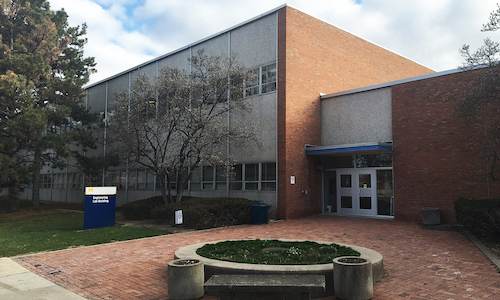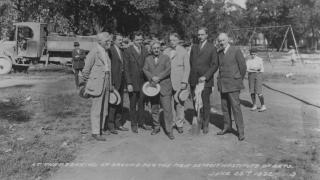
University of Michigan-Dearborn’s engineering program attracts experienced faculty, partnerships with global companies and recognition as a top undergraduate engineering program.
And soon, a new Engineering Lab Building (ELB) will allow the college to further create the hands-on, real-world experiences critical to preparing students for 21st century engineering careers.
The Michigan Legislature recently approved a $30 million capital outlay that will help fund a new ELB facility, replacing a nearly 60-year-old building. Gov. Rick Snyder is expected to sign the bill soon. The estimated cost of the project is $90 million, which was more cost and time efficient than renovation. Additional information about the project and construction timelines will be announced in the coming months.
“This is great news not only for the College of Engineering and Computer Science (CECS) but for the entire university. The new building will transform our university and help solidify a bright future for UM-Dearborn and the students we serve for decades to come,” said UM-Dearborn Chancellor Daniel Little.
A new ELB enables CECS to continue to respond to growing regional and national demand for engineering graduates. UM-Dearborn’s engineering program has seen a 74 percent increase in enrollment since 2010 and plans to double the number of CECS graduates by 2020.
CECS Dean Tony England said the new facility—with new technology, modern research space and flexible learning and lab areas—will better prepare students for 21st-century issues, skills and careers.
“This old facility not only has limits with capacity, but there are also issues with incorporating new technology. In a 1959 building, built with a 1950s understanding of engineering, modern engineering practices and technology either can’t be done or can only be done at an unreasonably high cost. We’ve been doing a good job with what we have and our students are doing well. But this change will push us—and our students—into the future,” said England, noting that 95 percent of CECS graduates have a job before graduation with an average starting salary of $63,000.
The new ELB also will provide additional opportunities for both industry research and K-12 and community college outreach.
“If the U.S. is to thrive, we need to be strong builders, creators, collaborators,” England said. “This new facility assures us that we can give our community and our students the best preparation for the future.”





